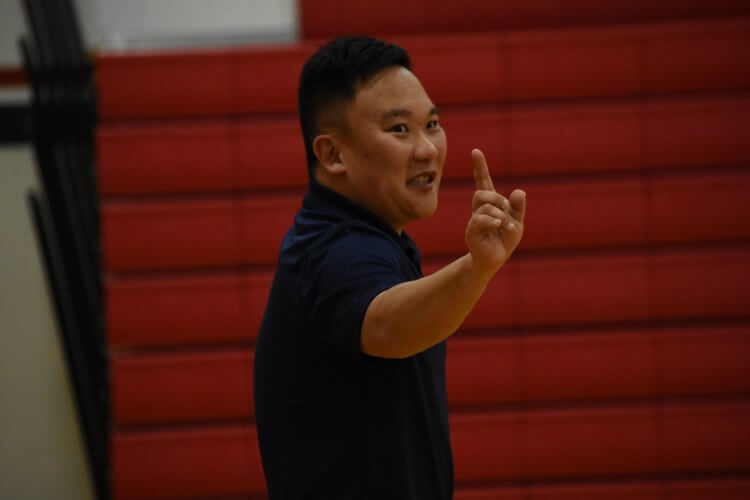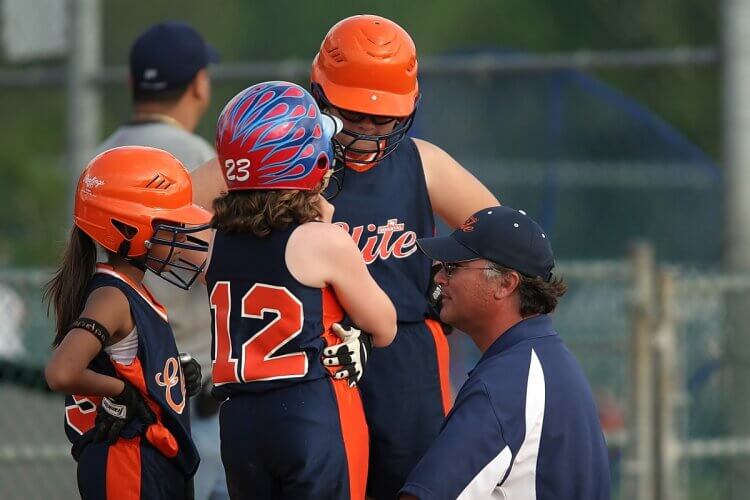(2 Minute Read)
The process a coach uses to develop an athlete can be applied to assist coaches in pursuing a successful head coaching career. Due to the numerous roles and responsibilities, qualified coaches’ preparation and training have become a topic of great importance. New coaches should pursue experiences and opportunities that lend themselves well towards successful head coaching tenures. Findings from a pilot study of twelve NCAA Division I head coaches identified three considerations for assistant coaches pursuing head coaching positions: finding a coaching mentor, gaining coaching experience, and pursuing coaching education.

Coaching Mentors
Lyle (1986) describes mentoring as essential in young coaches’ development because learning from more experienced coaches occurs. Learning how to coach effectively is facilitated by participating in informal and formal learning communities with coaching peers (Gilbert, Gallimore, & Trudel, 2009), who may serve as professional mentors. In a study conducted by Irwin, Hanton, and Kerwin (2004), 91% of coaches in the study identified mentoring as very important in developing elite coaching knowledge. Mentors not only socialize mentees into the profession, but they also help their mentee navigate problems or consider important decision-making factors, to eliminate fumbling over unseen obstacles later on in one’s career (Abravanel, 2012). Citing Coakley’s (1990) initial work acknowledges the importance of veteran coaches on the careers of those who would like to become a full-time coach and suggests that younger coaches’ future usually depends on the sponsorship of established coaches serving as a mentor. Once a mentor has been identified and a relationship established, assistant coaches should gain as much coaching experience as possible.
Coaching Experience
Years of experience as an athlete may influence the developmental stage of learning to coach (Gilbert & Trudel, 2005) and coaches draw on their own experiences, interactions with other coaches, and numerous athletes’ experiences to employ their coaching development (Lynch & Mallett, 2008). While rookie coaches may possess a great coach’s inherent qualities, it is still pertinent to gain a variety of quality coaching experiences (i.e., different athletes, facilities, coaching strategies) in fostering coaching learning and improvement.

Coaching Education
A coach is a person who teaches athletes. Like a teacher, a coach must stay current in their sport and continually seek to learn more and better oneself for the team’s common good. Effective coaches continue to study and learn the sport they teach to provide age-appropriate instruction and help athletes develop (Gilbert et al., 2010). Research suggests that the most successful coach is the one who is in a state of continuous learning and growing (Abravanel, 2012). Coaching education can be accomplished through attending clinics, coaching workshops, attaining coaching licenses, and coaching certificates.
Categories of Experiences for Assitant Coaches
|
Coaching Mentor Identify a coaching mentor and foster a meaningful relationship. |
Coaching Experiences Seek a variety of coaching experiences both on and off the field or court, or play space. |
Coaching Education Seek to gain knowledge and stay committed to continued education in the sport and coaching. |
In Sum
Three critical elements work together simultaneously and individually when an assistant coach is pursuing a head coach position. Gould et al. (1990) identified the essential sources responsible for developing coaches’ knowledge: coaching experience and engaging with other coaches. Practitioners can use the three categories of experience as considerations when identifying prerequisites that provide an easy to navigate roadmap when pursuing a head coaching position. An assistant coach should identify a person who can serve in a mentorship capacity. Coaching experiences should range from on the field at practices and games to administrative work in the office. While the assistant coach is working with a mentor and gaining coaching experience, they should also pursue coaching education opportunities.
References
Abravanel, L. (2012). Young Coaches: How to shift through the masses, Soccer Journal, p 19-21.
Gilbert, W., Gallimore, R., & Trudel, P. (2009). A learning community approach to coach development in youth sports. Journal of Coaching Education, 2(2), 1–21.
Gilbert, W., Nater, S., Siwik, M., & Gallimore, R. (2010). The pyramid of teaching success in sport: Lessons from applied science and effective coaches. Journal of Sport Psychology in Action, 1(2), 86-94.
Gilbert, W. D., & Trudel, P. (2005). Learning to coach through experience: Conditions that influence reflection. The Physical Educator, 62(1).
Gould, D., Gianinni, J., Krane, V., & Hodge, K. (1990). Educational needs of elite U.S national team, pan American and Olympic coaches. Journal of Teaching in Physical Education, 9(4), 322-344.
Irwin, G., Hanton, S., & Kerwin, D. (2004). Reflective practice and the origins of elite coaching knowledge. Reflective practice, 5(3), 425-442.
Lyle, J. (1986). Coach education: Preparation for a profession. International Conference on Sport, Physical Education and Dance, Recreation and Health. Edinburgh, Scotland, 1-25.
Lynch, M., Mallett, C. (2006). Becoming a successful high-performance track & field coach. Modern Athlete and Coach, 44(2), 15-20.
